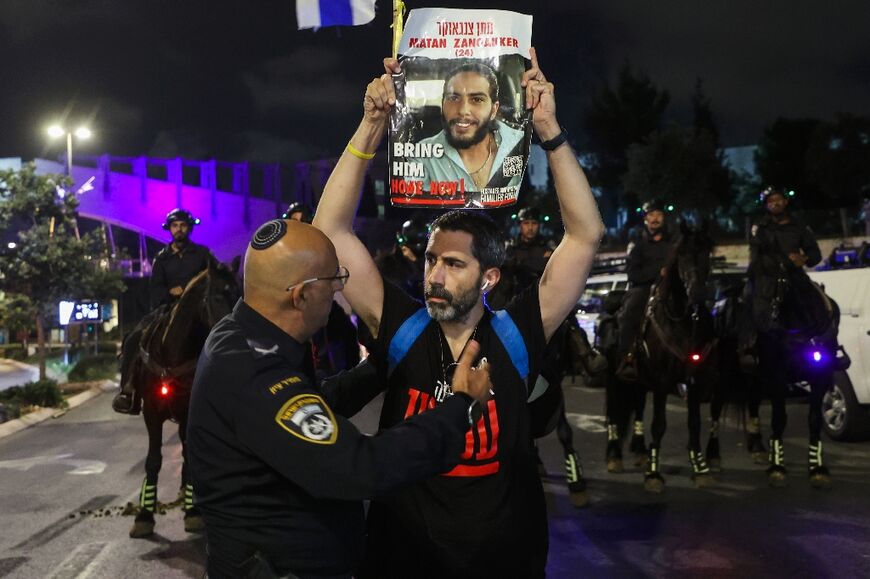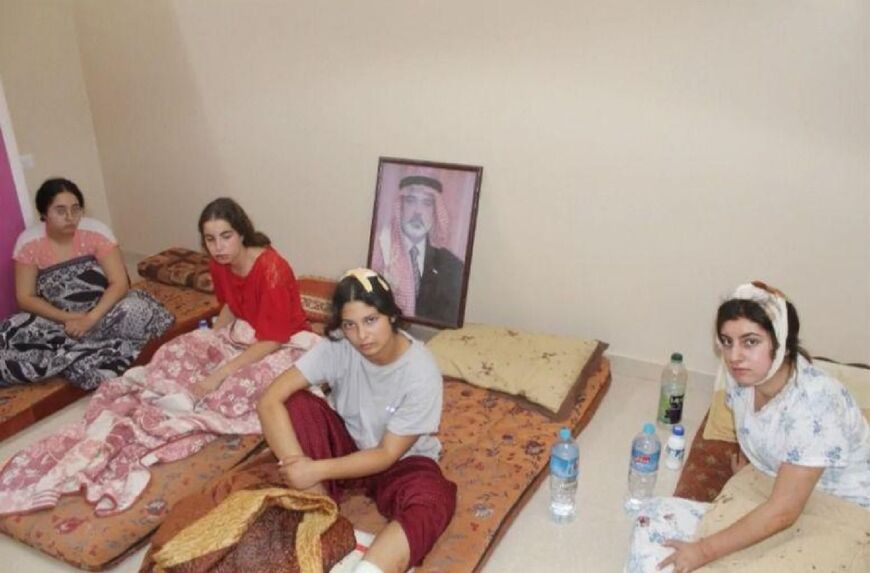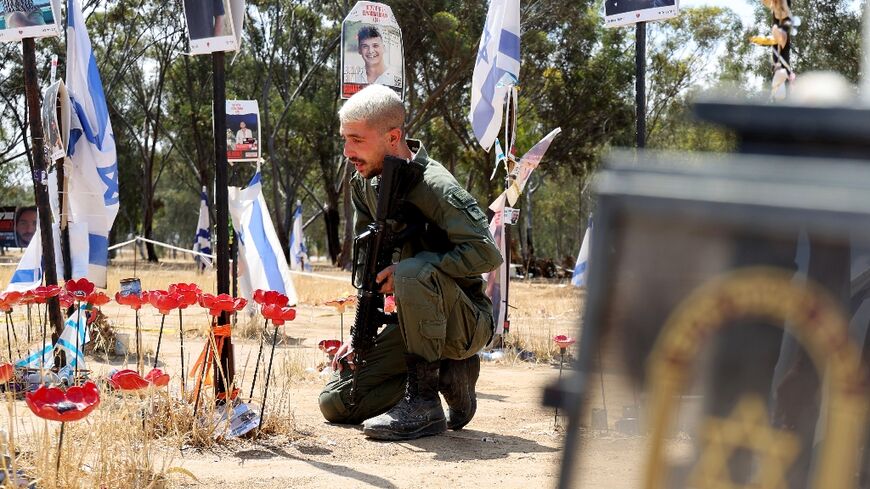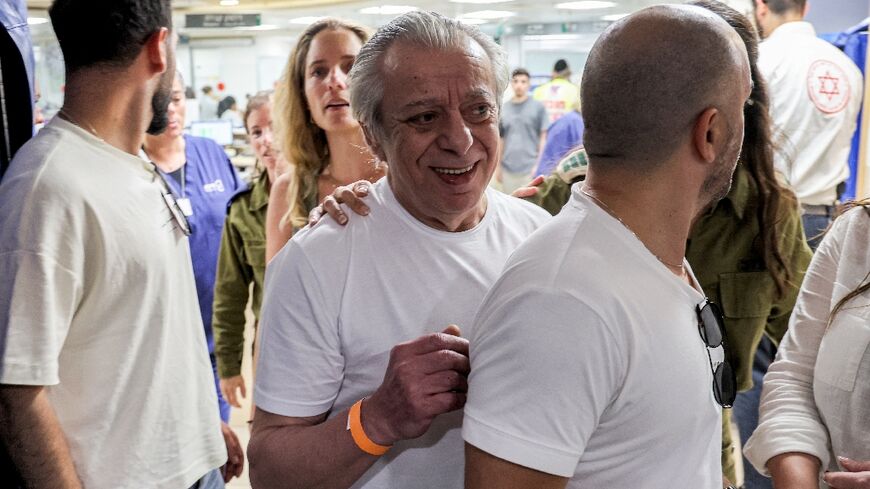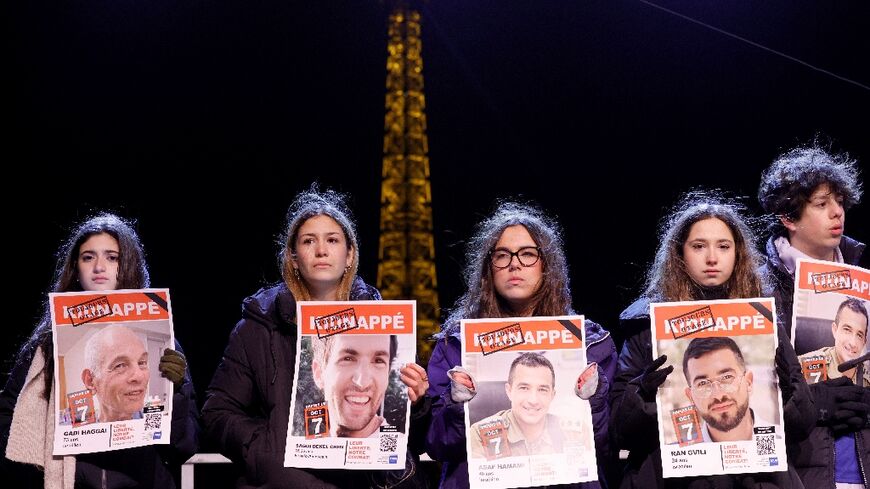Israeli hostage families divided on how to secure release
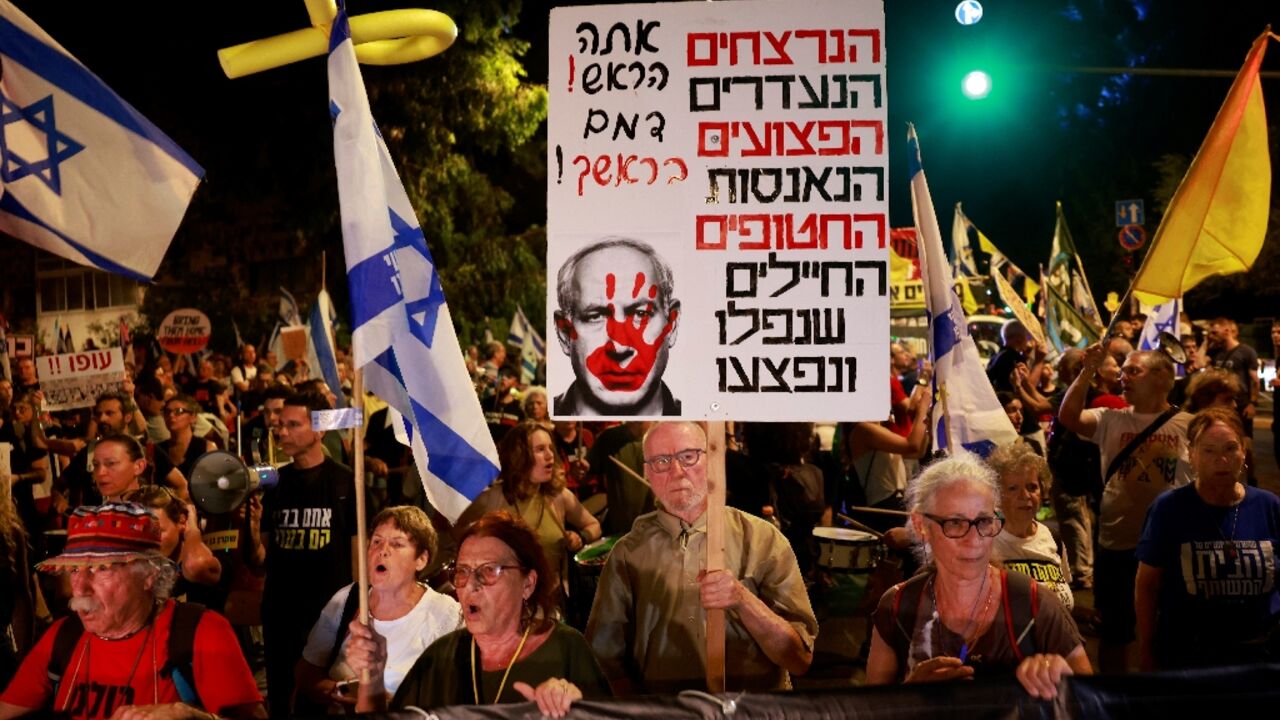
The families of hostages grabbed by Hamas gunmen on October 7 noisily agree they want the captives home but are split on how best to achieve it.
"There is no unity among the families," said Dani Miran, whose 47-year-old son, Omri, was taken at gunpoint from the Nahal Oz kibbutz in Hamas's unprecedented attack on southern Israel.
"There are people on the left, on the right, religious people, secular and Bedouins. We have to find common ground," added the father.
Some direct their frustrations toward Israeli Prime Minister Benjamin Netanyahu, accusing him of sacrificing the captives in pursuit of "total victory" over Hamas.
Others back the government's stance that only increased military force in Gaza will return the remaining captives.
For almost 300 days, the families have tried to set their differences aside to join the solemn rallies staged at least once a week in Tel Aviv.
"The common point between us is that we want the hostages back. But everyone fights in his own way and I don't know which is the right one," said Miran.
The 79-year-old has sworn not to cut his long white beard until his son is returned. He also speaks at the rallies where families have been pushing Netanyahu to reach a truce deal before he visits the United States next week.
- Agreement now -
On Wednesday night, hundreds of families and their supporters gathered for a last-ditch push before the Israeli leader's departure.
"Netanyahu, without a deal, there is no travelling," read one man's sign.
Another warned, "Time is running out".
Netanyahu will speak before the US Congress on July 24 and is also expected to meet with President Joe Biden.
The visit comes after several months of indirect negotiations between Hamas and Israel, reinvigorating some families' hopes for a ceasefire agreement that would see hostages exchanged for Palestinian prisoners held by Israel.
Omri Shtivi, whose brother Idan is a captive in Gaza, said pushing for the deal was not political so much as "moral".
"We demand the return of our loved ones, we don't want to dismantle the government," he said.
At a gathering nearby, fellow hostage relative Yifat Kalderon disagreed, calling on the government to step down.
"We demand an end to the war immediately and an agreement now. That's the only way to bring them home," said Kalderon, whose French-Israeli cousin Ofer Kalderon was taken from the Nir Oz kibbutz.
"No heroic operation will bring them all back. In nine months, military operations have only saved seven people."
More than 100 hostages were freed during a week-long truce in November, leading many families to believe better odds lie with another deal.
During the October 7 attacks that sparked the war, Palestinian militants seized 251 hostages, 116 of whom are still in Gaza, including 42 the Israeli military says are dead.
The surprise Hamas attack resulted in the deaths of 1,195 people, mostly civilians, according to an AFP tally based on Israeli figures.
Israel's military retaliation has killed at least 38,848 people, also mostly civilians, according to data from the health ministry in Hamas-ruled Gaza
- 'Until victory' -
Yaron Or, the father of hostage Avinatan, represents a minority camp that sees a ceasefire agreement as jeopardising Israel's future by putting it at risk of another attack.
"Fight until victory and bring back Avinatan," read his sign at Wednesday night's rally.
Avinatan was kidnapped from the Nova music festival with his girlfriend Noa Argamani, who was among four hostages rescued in June during an Israeli military raid.
"Only if the army takes control of the whole Gaza Strip and the inhabitants understand that Hamas is defeated will they free the hostages," said Or, who is part of a group of families who reject negotiations with Hamas.
Despite their divergent approaches, the hostage families are still coming together to push their shared goal: bring them home.
On Wednesday, central Tel Aviv was again filled with their shouts.
"Achshav," they chanted, "now".


